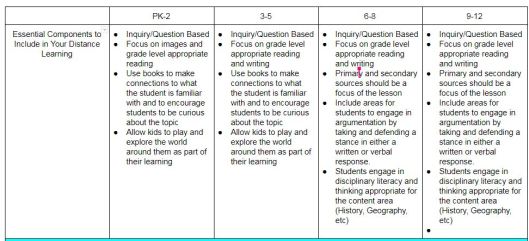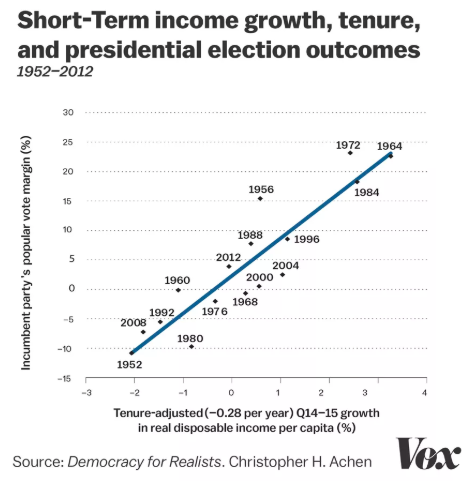In a course on policy analysis, we have been investigating these policy questions: Who should decide which kids attend which schools? (E.g., Should parents choose in a marketplace of schools? Should all kids be required to attend the nearest public school?) And on what basis should these decisions be made? My students have begun to investigate other policy issues of their own choice, using similar tools.
We have been applying a scientific paradigm, in this sense: We ask why questions, and the “why” is causal. What causes people to put their kids in certain schools? What causes schools to have certain outcomes? What might cause a government to choose a given policy for school assignment?
Answering these questions seems relevant to policy because we can decide what the state should want and then how to set up institutions so that those outcomes are more likely, given what individuals are likely to do in the situations that confront them.
Lots of factors can cause people to act in certain ways, including emotion, error, and instinct. But we have often assumed that people act in order to accomplish ends. Parents try to get their children into a given school so that their kids will be on a path to safety and wealth. Governments segregate schools to preserve white supremacy or else integrate them to promote a certain form of equity. These explanations assume purposive behavior toward ends. We could call them “functionalist” explanations. We are asking, “What is—and what should be—the function of public schools?”
In this context, I have assigned Clifford Geertz’ classic text, “Deep Play: Notes on the Balinese Cockfight,” Daedalus, vol. 101, no. 1, Myth, Symbol, and Culture (Winter, 1972), pp. 1-37.
Geertz and his unnamed spouse–both of them “malarial and diffident”—arrive in a village in Bali, Indonesia in the late 1950s to study it. They encounter many institutions and practices e.g., farming and Hindu temple festivals. Among these, cockfighting is prominent and also somewhat alien, since most Americans don’t participate in cockfights. It creates puzzlement for Geertz and his readers and seems to need an explanation.
Our puzzlement grows as we realize that cockfighting: 1) occupies a lot of energy and time; 2) persists even though it is illegal; 3) involves betting that is “irrational” in the sense that it is carefully contrived to cause a net loss of utility; and 4) conflicts with several pervasive Balinese norms. For instance, Balinese culture is integrated on sexual lines, but cockfighting is just for men. Balinese culture is very courtly, but cockfighting is violent and extremely competitive.
You could ask lots of “why” questions. Why do Balinese people engage in cockfighting? More specifically, why are the betting odds for the main event always set at 1:1 and why are there also side bets that are never 1:1? Or why do people from the same factions never compete in the main fight?
And you could pose functionalist explanations. The function of cockfighting in Bali is …?
But here is a different question. What is a Balinese cockfight? That question has many possible answers:
- “A chicken hacking another mindless to bits “(p. 84)
- An example of “deep play” (p. 71)
- “fundamentally a dramatization of status concerns” (p. 74)
- an “encompassing structure” that presents a coherent vision of “death, masculinity, rage, pride, loss, beneficence, chance” (p. 79)
- “a kind of sentimental education” from which a Balinese man “learns what his culture’s ethos and his private sensibility (or, anyway, certain aspects of them) look like when spelled out externally in a collective text” p. 83
These descriptions range from “thin” (chickens fighting) to “thick” (a vision of death and masculinity)
Gilbert Ryle originated the thin/thick distinction here:
Two boys fairly swiftly contract the eyelids of their right eyes. In the first boy this is only an involuntary twitch; but the other is winking conspiratorially to an accomplice. At the lowest or the thinnest level of description the two contractions of the eyelids may be exactly alike. From a cinematograph-film of the two faces there might be no telling which contraction, if either, was a wink, or which, if either, were a mere twitch. Yet there remains the immense but unphotographable difference between a twitch and a wink. For to wink is to try to signal to someone in particular, without the cognisance of others, a definite message according to an already understood code.
You could ask, “Why did the boy’s eyelid contract?” That helps you answer the question, “What was that?”
According to Berry Tholen (“Bridging the gap between research traditions: on what we can really learn from Clifford Geertz.” Critical Policy Studies 12.3 (2018): 335-349.),
Three aspects of Deep Play are most often cited as exemplary for interpretive research in the social sciences:
• trying to understand people as they understand themselves;
• offering understandings by presenting thick descriptions and
• using text-analysis as the paradigm for studying societal meanings.
What is the relevance of this kind of inquiry to policy?
1) It reminds us that “what?” is often as hard and important a question as “why?”
I was recently the principal investigator for a social science research project asking whether a new arts venue in Boston’s Chinatown—the Pao Arts Center—benefits community members, specifically by improving their mental health. This is a causal question, and we investigated it using surveys and interviews. Ideally, researchers would randomly assign people to get the “treatment” of the Pao Arts Center, or not, and measure its effects on hard outcomes, like stress hormones.
But there is also a question of “what.” On a given afternoon at Pao, the auditorium might be a venue for a classical Chinese opera or a spoken-word performance by a young Asian-American artist. What are those things? I have so little background in Chinese opera that I can only give the thinnest description (“Chinese opera”). I cannot thicken those words to say, “This is an excellent, if conventional, performance of an opera from the Beijing court tradition.” Or, “This is a subversive postmodern version of a well-known classic.” Or, “This is an incompetent effort to perform a classic.” I do not know how to thicken the description, but I could ask better-informed observers or learn more myself.
Only once we know what the art is can we know whether that kind of art helps with mental health. Hence our project deliberately combined humanities scholars from Department of Theatre, Dance, and Performance Studies with public health scholars from the Tufts Medical School.
2) It requires certain methods.
How can we know what a culturally complex object is? How does Geertz go about knowing? This is a moment to talk about ethnography, textual analysis, and other methods of interpretation. And it is a moment to ask whether interpretations are arbitrary and subjective, or whether they can be valid.
3) It recognizes that human beings do not always act for outcomes.
Geertz asserts (citing Weber, vaguely) that “the imposition of meaning on life is the major end and primary condition of human existence” (p. 16). We sometimes act not to do things but to “increase the meaningfulness” of things. If that is true, policy analysts and policymakers should take meaning into consideration.
To return to our original policy question: What is a school in modern America? What is a school within a given system of school assignment? What is a “no-excuses” charter school, or a de facto segregated neighborhood school, or a small-town school that serves everyone?
![]() It will also be an opportunity for you to experience Conversation Cafe in an online format. This model is an elegantly simple process for bringing people together in small group conversations to share, listen to one another, and deepen their understanding of one another and a topic. It was built for face-to-face conversations, but Susan and I have been experimenting with it online and are finding that it may be a great model to help people connect virtually during a time of distancing physically. We plan to share some materials for moving this to an online format in advance of the call!
It will also be an opportunity for you to experience Conversation Cafe in an online format. This model is an elegantly simple process for bringing people together in small group conversations to share, listen to one another, and deepen their understanding of one another and a topic. It was built for face-to-face conversations, but Susan and I have been experimenting with it online and are finding that it may be a great model to help people connect virtually during a time of distancing physically. We plan to share some materials for moving this to an online format in advance of the call!






 Concerned citizens across the globe fear that democratic institutions are failing them. Citizens feel shut out of politics and worry that politicians are no longer responsive to their interests. In Hope for Democracy, John Gastil and Katherine R. Knobloch introduce new tools for tamping down hyper-partisanship and placing citizens at the heart of the democratic process. They showcase the Citizens’ Initiative Review, which convenes a demographically-balanced random sample of citizens to study statewide ballot measures. Citizen panelists interrogate advocates, opponents, and experts, then write an analysis that distills their findings for voters. Gastil and Knobloch reveal how this process has helped voters better understand the policy issues placed on their ballots. Placed in the larger context of deliberative democratic reforms, Hope for Democracy shows how citizens and public officials can work together to bring more rationality and empathy into modern politics.
Concerned citizens across the globe fear that democratic institutions are failing them. Citizens feel shut out of politics and worry that politicians are no longer responsive to their interests. In Hope for Democracy, John Gastil and Katherine R. Knobloch introduce new tools for tamping down hyper-partisanship and placing citizens at the heart of the democratic process. They showcase the Citizens’ Initiative Review, which convenes a demographically-balanced random sample of citizens to study statewide ballot measures. Citizen panelists interrogate advocates, opponents, and experts, then write an analysis that distills their findings for voters. Gastil and Knobloch reveal how this process has helped voters better understand the policy issues placed on their ballots. Placed in the larger context of deliberative democratic reforms, Hope for Democracy shows how citizens and public officials can work together to bring more rationality and empathy into modern politics.